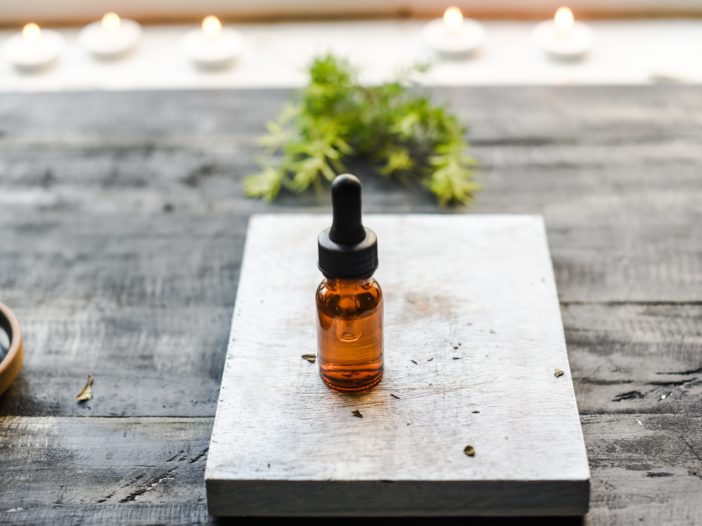
Everything you need to know about using essential oils at home!
By Dr. Jeanette Jacknin
Dermatologist
Essential oils are one of the great untapped resources of the world. The use of essential oils is a natural system of medicine that can prevent illness and alleviate symptoms while also working in harmony with people and the planet alike. Essential oils provide us with protection, treatment and pleasure without polluting ourselves or our environment.
Using Essential Oils
The essential oil is the volatile part of the plant, which is extracted from its other parts. Methods of extraction include steam distillation (the most common), solvent extraction, mechanical expression and CO2 extraction. On average, one type of essential oil contains 100 chemical components of which our bodies are also composed, thus making them powerful, complex and nontoxic.
Essential oils in the pure state are too highly concentrated to be used directly on the skin and should be diluted in a base vegetable, nut or seed oil. Usually only 2 to 5 drops of the concentrated oil are added to each teaspoon of a carrier oil. Sweet almond, avocado, grapeseed, jojoba and olive oils are popular carrier oils.
The use of essential oils is one of the fastest ways to achieve medicinal or psychological effects. It takes only 20 minutes to 2 hours to be completely absorbed through the skin and 3 to 6 hours to be completely excreted. From the nasal cavity, the molecules of the oils go immediately to the limbic system, or emotional part of the brain, which is directly connected to the parts of the brain that control the type of brain waves, heart rate, blood pressure, breathing, memory, stress levels and hormone balance. Thus, essential oils can influence many organ systems as well as our mind and spirit almost immediately!
Modern-day research has confirmed the effectiveness of centuries of use of essential oils. They were used as far back as 1800 BC in Babylon, India, China and Egypt. The father of medicine, Hippocrates, extolled their virtues around 400 BC. French physicians routinely prescribe essential oil treatments and in the last 10 years essential oils have become increasingly well known and popular in the United States. As a demand for less toxic, natural cosmeceutical ingredients increases, essential oils are being rediscovered for their incredible effectiveness and enjoyment.
Essential Oils for Skincare
Now let’s take a look at the most important essential oils made from flowers, which are incredibly valuable and enjoyable tools for daily skin care and the prevention and treatment of skin problems. Lavender, chamomile, geranium and rose are all amazing sweet-scented, important skincare treatments. Lavender is relaxing and balancing for all skin types, and its usefulness to any aromatic skincare regimen cannot be overstated. It is anti-inflammatory, antiseptic, stimulates new cell growth and balances oil production of the skin. Lavender is great for acne, burns, dandruff, eczema, insect bites, psoriasis and wounds. It is also remarkable for easing tension and stress while it works its wonders on the skin.
Chamomile can be recognized by its apple-like scent and is very important in skincare, with its extremely strong anti-inflammatory and antiseptic properties. German and Roman Chamomile are distilled from the flowers of two similar plants; however, German chamomile has a unique blue color which comes from the azulene found in the distilled plant material. Studies have shown that chamomile oil reduces dryness, itching, redness, and sensitivity in irritated and inflamed skin. It is also wonderfully calming and uplifting.
Geranium has a green, sweet, floral aroma that is sometimes rosy or minty, depending on the subgroup of plant used. Geranium is anti-fungal, so it is helpful for athlete’s foot. It is especially useful in treating cellulite and as an astringent toner for oily skin, as it stimulates both the lymphatic and circulatory systems, promoting the elimination of wastes. Geranium also enhances new skin cell growth as it tones and tightens skin tissue, imparting a healthy glow. It is helpful for all skin types except sensitive skin.
Rose, the queen of flowers, is prized as one of the most beautiful, best-scented flowers. Antibacterial, antiseptic, and astringent, it is marvelous for acne rosacea and imparts a youthful beauty to aging, dry skin.
Synergistic blends of more than one essential oil are very particular and powerful. However, the relative proportions of each oil need to be correct in order to augment the potency of the combination. For example, the anti-inflammatory action of chamomile is greatly increased by adding lavender in the correct amount.
A word of caution: Lavender, rose and geranium should be avoided during pregnancy, as they are toxic to the fetus.
Floral essential oils are important, powerful ingredients to add to cleansers, scrubs, masks, tonics, face oils, lip gloss, bath oils and body lotions to treat all skin types and conditions. No doubt they will be increasingly used in the future as natural healing ingredients are sought out and favored.
Dermatologist Dr. Jeanette Jacknin is author of Smart Medicine for Your Skin.
Do you have a favorite essential oil? Share your experience in the comments below!
DIY essential oil beauty:









Got a comment? Share your thoughts!